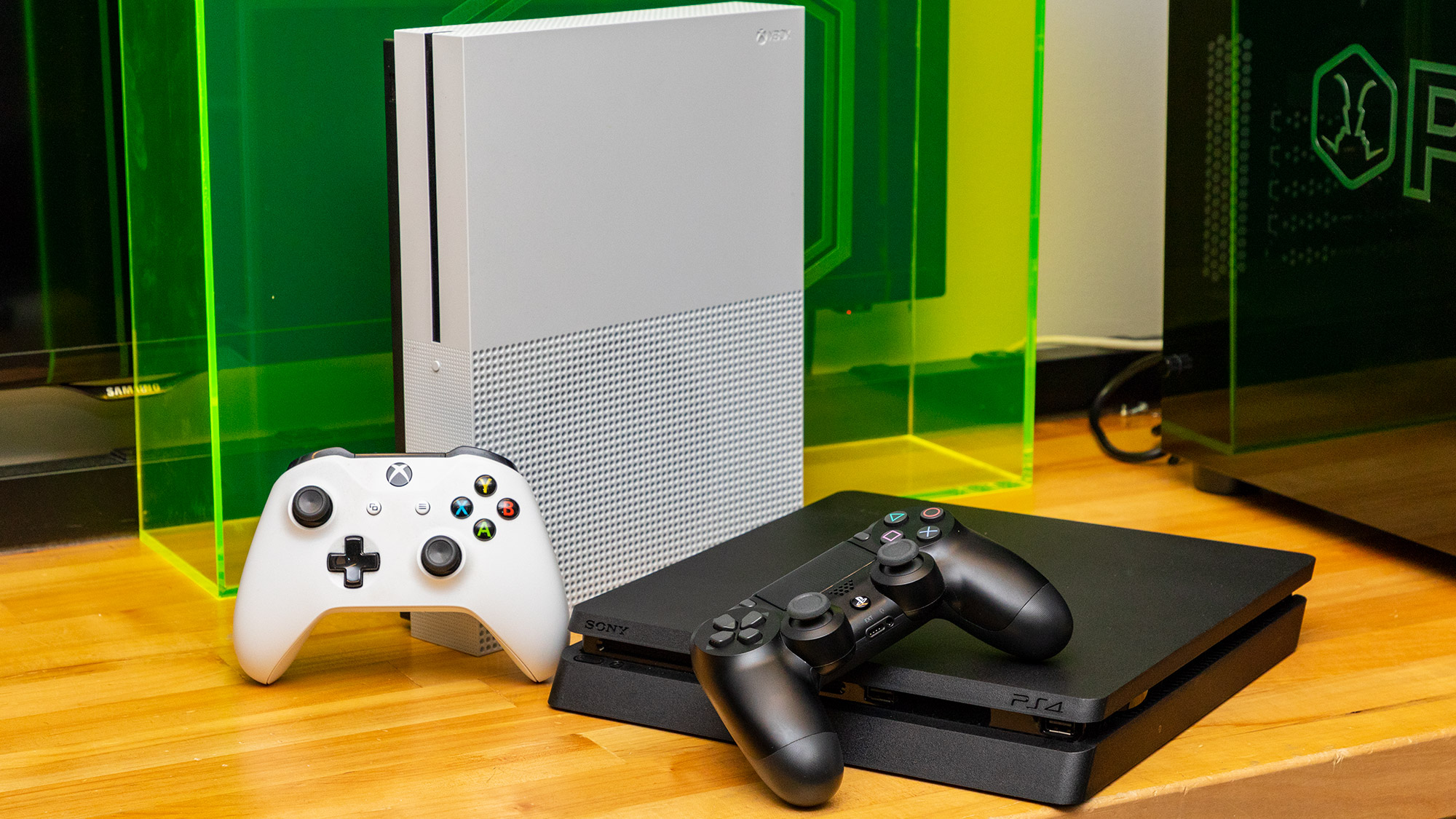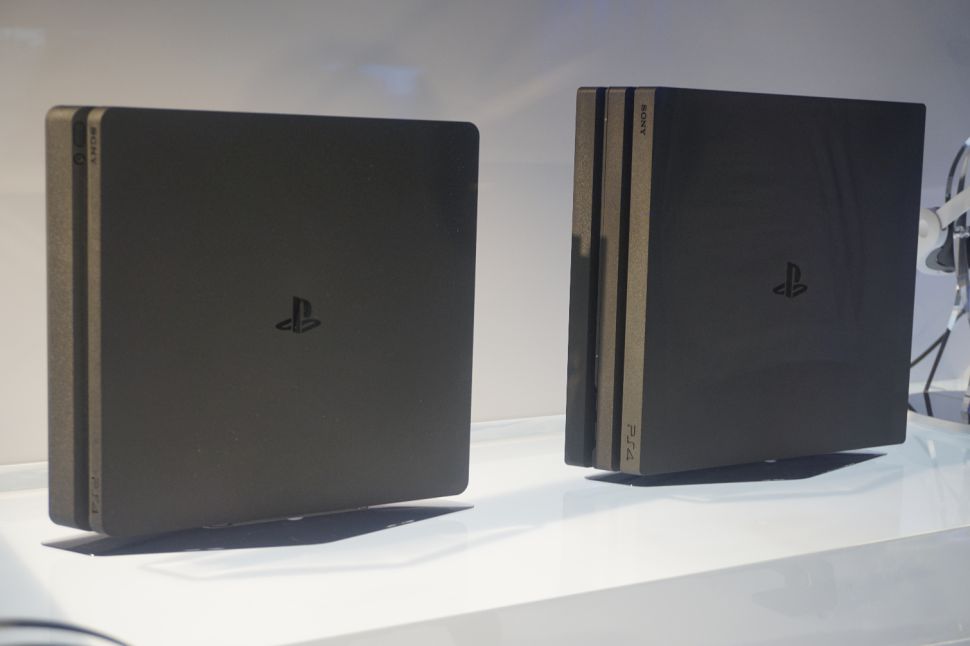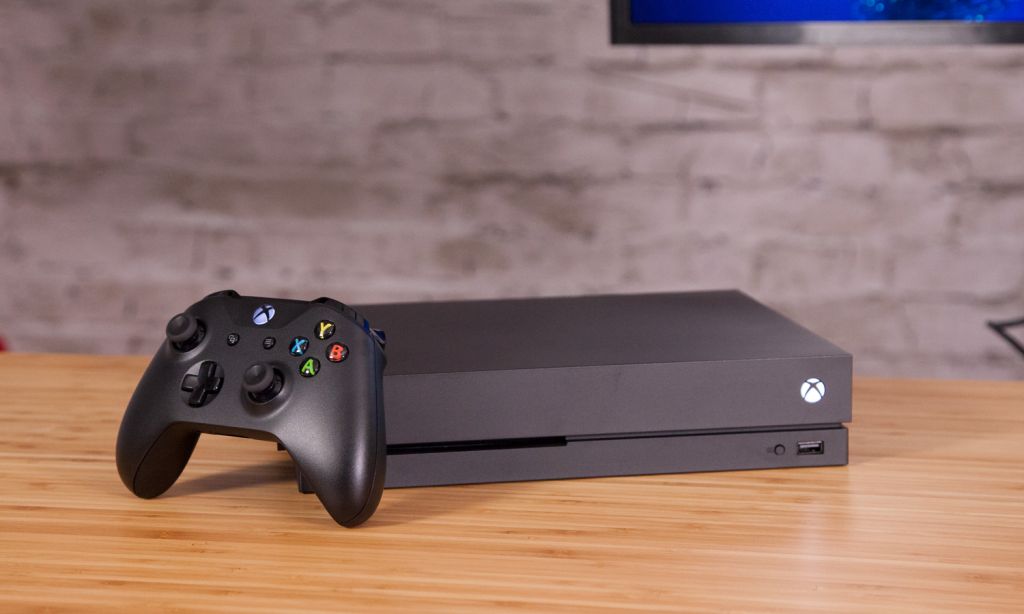Is buying a PS4 or Xbox One still worth it?
The PS4 and Xbox One are in high demand, but they're past their prime

If you're in the market for a PS4 or Xbox One, you are surprisingly not alone. In spite of the PS5 and Xbox Series X coming out months ago, Sony and Microsoft's last-gen consoles are just as popular as ever, not to mention increasingly hard to find.
It's not difficult to understand why people are buying PS4s and Xbox Ones in droves. They can't find PS5s or Xbox Series Xs, and it's better to have an outdated console than no console at all — particularly if you needed something to give as a holiday gift.
- Play the best PS4 games
- Also try the best Xbox One games
Also, the PS5 has few true exclusives; the Xbox Series X has none. The PS4 and Xbox One still have at least a little life left in them. But is it worth picking up one of these aging consoles instead of their hard-to-find replacements?
The short answer is "no." While the current-gen consoles have their charms, particularly for new gamers, they simply no longer represent a good investment.

Why buy a PS4 or Xbox One?
During big sales events such as Black Friday and Cyber Monday, the Tom's Guide staff uses search trends to help us find deals. Imagine my surprise when I found that "PS4" and "Xbox One" were, far and away, two of the most popular search terms.
Customers were desperate to find PS4s and Xbox Ones (especially PS4s), and when we were lucky enough to find the elusive consoles in stock, they sold out almost as fast as their newer counterparts. (The Switch was also ridiculously popular this holiday season, but you can now find one pretty much anywhere. The PS4 and Xbox One are still fairly elusive.)
As I said, I think the time to buy one of these consoles is past unless you can find a new-in-box model at a staggering discount. (Think $200 or less.) But clearly, there must be some reason why people are still buying these systems in droves.
Sign up to get the BEST of Tom's Guide direct to your inbox.
Get instant access to breaking news, the hottest reviews, great deals and helpful tips.
The simple answer is that no one can find the PS5 or the Xbox Series X, whereas the PS4 and Xbox One are comparatively more available. Since we're very early in the next-gen consoles' life cycles, the current-gen consoles still play 99% of the same games. Combine this with the holiday compulsion to give gifts and it's not hard to understand why the PS4 and Xbox One are having one last hurrah.
In all seriousness, there are a few reasons why the PS4 and Xbox One are still viable. There's the game library, as discussed above, which should be relatively stable for at least the next year, possibly more. Also, most consumers don't own 4K TVs, so 1080p-optimized consoles aren't as much of a dealbreaker as you might think.
If you haven't owned a console in a while (or ever), the PS4 and Xbox One libraries could theoretically keep you busy for years. If and when you upgrade to a PS5 or Xbox Series X, you can take your games and your save files with you, thanks to cross-gen compatibility. Failing all that, you can always use a current-gen console as a very large streaming box.
Still, I can't think of a great reason to buy a PS4 or Xbox One at this stage of the game, and it has to do with backwards compatibility. That, and the fact that the PS4 is in the process of being discontinued as I write this article.

Don't buy a PS4 or Xbox One
This is common knowledge for dedicated gamers at this point, but may not be immediately apparent to more casual consumers: The PS5 is fully backwards compatible with the PS4. The Xbox Series X is fully backwards compatible with the Xbox One, and partially backwards compatible with the Xbox 360 and original Xbox.
As such, you can pay $300 for a PS4 or an Xbox One, or $500 for a PS5 or Xbox Series X. When you consider that you'll probably have to upgrade within a year or two anyway, putting that $300 toward a new console instead of an old one makes a lot of sense.
The calculus is even starker when you remember that the 4K-capable PS4 Pro and Xbox One X variants still go for around $400, and both the PS5 and Xbox Series X have cheaper versions available. The $300 Xbox Series X isn't 4K-capable, but is otherwise a very powerful little machine, while the $400 PS5 Digital Edition lacks a disc drive but is otherwise identical to the standard PS5.
A PS5 will play every PS4 game (with a few niche exceptions). It will also play 4K Blu-ray discs, which no PS4 model has ever supported. An Xbox Series X will play every Xbox One game, and you can even get all first-party Microsoft releases for a flat monthly fee with Xbox Game Pass. (The Series X will also play 4K Blu-rays, but to be fair, so will most Xbox One models.)
Essentially, buying a last-gen console simply delays your next-gen purchase, while tacking an extra $300 onto the price tag. Except for immediate availability, there's no real benefit — and plenty of drawbacks, once you have to figure out what to do with a bulky, outdated, unsellable console a few years down the line.
As for when you'll be able to pick up that shiny new PS5 or Xbox Series X, well, that's harder to answer.
Marshall Honorof is a senior editor for Tom's Guide, overseeing the site's coverage of gaming hardware and software. He comes from a science writing background, having studied paleomammalogy, biological anthropology, and the history of science and technology. After hours, you can find him practicing taekwondo or doing deep dives on classic sci-fi.

